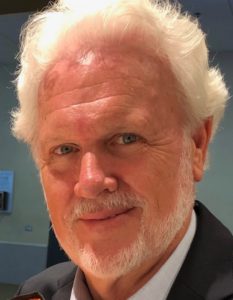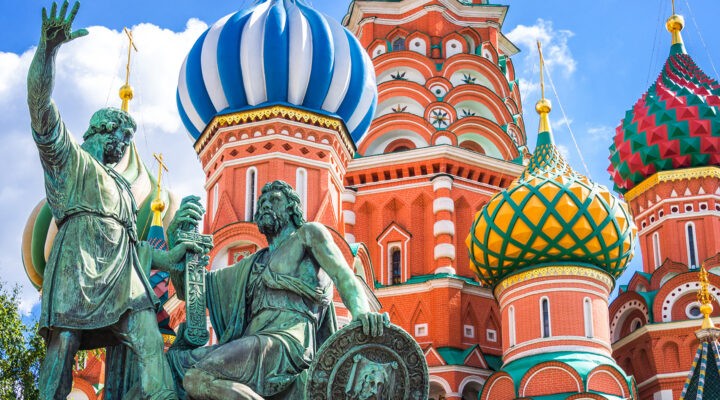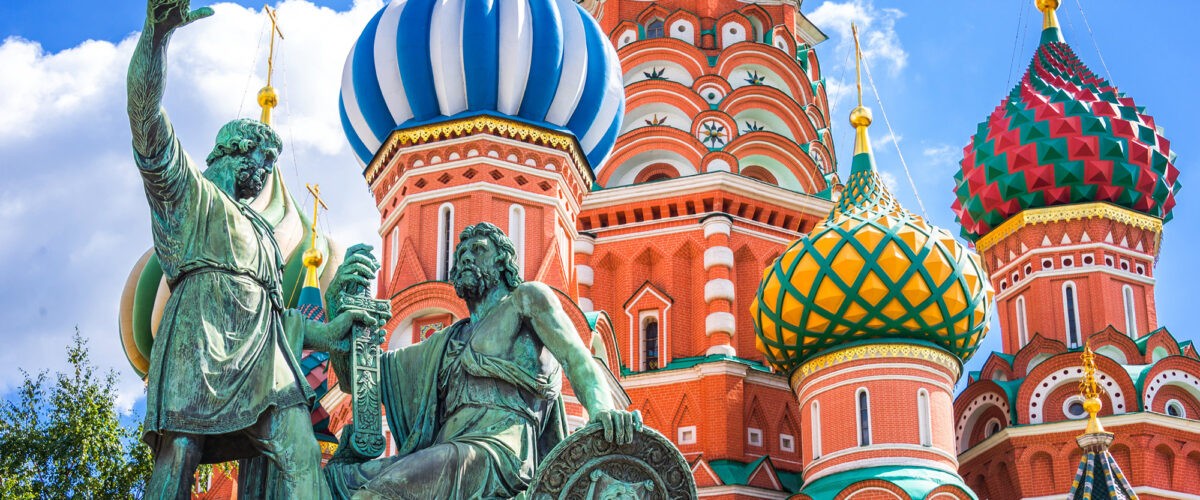The religious angle of the war in Ukraine has been largely ignored by the generals, the journalists and the politicians. But the pastors, bishops and theologians of the Christian community around the world, especially the Orthodox, have found their voice.
This week they issued “A Declaration on the ‘Russian World’ (Russkii Mir) Teaching.” With just a few substitutions of titles and vocabulary, it could have been titled “A Declaration on Christian Nationalism in Russia, the United States, and Around the World.”
It asserts that “the senior hierarchy of the Russian Orthodox Church has refused to acknowledge this invasion, issuing instead vague statements about the necessity for peace in light of ‘events’ and ‘hostilities’ in Ukraine, while emphasizing the fraternal nature of the Ukrainian and Russian peoples as part of ‘Holy Rus,’” blaming the hostilities on the evil “West,” and even directing their communities to pray in ways that actively encourage hostility.
“The pastors, bishops and theologians of the Christian community around the world, especially the Orthodox, have found their voice.”
The declaration continues: “The support of many of the hierarchy of the Moscow Patriarchate for President Vladimir Putin’s war against Ukraine is rooted in a form of Orthodox ethno-phyletist religious fundamentalism, totalitarian in character, called Russkii mir or the Russian world, a false teaching which is attracting many in the Orthodox Church and has even been taken up by the Far Right and Catholic and Protestant fundamentalists.”
I urge you to read it here.
The document comes out of the Orthodox Christian Studies Center at Fordham University. Fordham is a Catholic (Jesuit) university in New York City enrolling 15,000 students in nine schools. Their Graduate School of Religion and Religious Studies asserts, “We are a global community of teacher-scholar-practitioners that passionately educates for solidarity, service and justice.”
The Orthodox Christian Studies Center was launched in 2015 to facilitate, finance and publish scholarship on the history, thought and culture of the Orthodox Christian world. Its work is published in five languages (English, Russian, Greek, Romanian and Serbian) and reaches more than one million readers.
The declaration is the latest in a series of documents from Christian Orthodox leaders addressing the war in Ukraine.
Patriarch Kirill of Moscow preached a sermon two weeks ago that decried the West as the enemy of Christianity, giving as the chief example of this spiritual decadence gay pride parades.
“With broken hearts, we are making an earnest plea that you use your voice and profound influence to call for an end to the hostilities and war in Ukraine and intervene with authorities in your nation to do so.”
Last week, a coalition of Christian leaders in the United States published an appeal to Kirill as the leader of the Russian Orthodox Church to use his influence to end the war in Ukraine. “With broken hearts, we are making an earnest plea that you use your voice and profound influence to call for an end to the hostilities and war in Ukraine and intervene with authorities in your nation to do so,” the letter read.
Earlier, Ioan Sauca, acting general secretary of the World Council of Churches (and a priest of the Orthodox Church) appealed to Kirill in these words: “Please, raise up your voice and speak on behalf of the suffering brothers and sisters, most of whom are also faithful members of our Orthodox Church. … I write to Your Holiness to intervene and mediate with the authorities to stop this war, the bloodshed and the suffering, and to make efforts to bring peace through dialogue and negotiations.”
Kirill responded immediately with an interpretation of the situation that could have been written in the Kremlin itself. His letter defends the “dramatic developments in Ukraine” with statements like this:
- “As you know, this conflict did not start today. It is my firm belief that its initiators are not the peoples of Russia and Ukraine, who came from one Kievan baptismal font, are united by common faith, common saints, and prayers, and share common historical fate.”
- “The origins of the confrontation lie in the relationships between the West and Russia. … Political forces which make it their aim to contain Russia … tried to make the brotherly peoples — Russians and Ukrainians — enemies. They spared no effort, no funds to flood Ukraine with weapons and warfare instructors. … Pursuing the same end was the church schism created by Patriarch Bartholomew of Constantinople in 2018. It has taken its toll on the Ukrainian Orthodox Church. … This tragic conflict has become a part of the large-scale geopolitical strategy aimed, first and foremost, at weakening Russia. … Russophobia is spreading across the Western world at an unprecedented pace.”
Meanwhile, the Fordham declaration comes as the latest document in this public exchange of protests, pleas and prayers. It rejects “the ‘Russian world’ heresy and the shameful actions of the government of Russia in unleashing war against Ukraine which flows from this vile and indefensible teaching with the connivance of the Russian Orthodox Church, as profoundly un-Orthodox, un-Christian and against humanity.”
Then, in six sets of affirmations and condemnations, it defines in eloquent and explosive language the sin of nationalism, both in its universal temptation and also in its historical realization, especially that emerging in modern Russia. It condemns the effort to replace the kingdom of God with a kingdom of this world such as “Holy Rus.” It rebukes those who replace obedience to the crucified and resurrected Lord “with that of any leader vested with ruling powers and claiming to be God’s anointed, whether known by the title of ‘Caesar,’ ‘Emperor,’ ‘Tsar,’ or ‘President.’”
“It defines in eloquent and explosive language the sin of nationalism.”
It asserts that the “division of humanity into groups based on race, religion, language, ethnicity or any other secondary feature of human existence is a characteristic of this imperfect and sinful world.”
It condemns “any teaching that demonizes or encourages the demonization of those that the state or society deems ‘other,’ including foreigners, political and religious dissenters, and other stigmatized social minorities.”
It affirms the call “to exercise personal and communal charity to the poor, the hungry, the homeless, the refugees, the migrants, the sick and suffering, and seeking justice for the persecuted, the afflicted and the needy” and condemns “those who pray for peace while failing to actively make peace.”
Finally, the declaration issues a call for truth-telling, describing events in Ukraine as a “full-scale invasion of a neighboring country by the world’s second-largest military power” and rejecting “any teaching or action which refuses to speak the truth, or actively suppresses the truth about evils that are perpetrated against the Gospel of Christ in Ukraine,” offering several examples from recent Orthodox speech.
Neither the war on the ground nor this public exchange of ideas and interpretations are likely to end soon. But the latter certainly will shed light on the ideology of Christian nationalism in these United States and Russia and raise alarm at their capacity to legitimize violence both here and in Ukraine.

Dwight Moody
Dwight A. Moody is an author, minister, scholar and host of the media site The Meeting House.
Related articles:
Religious liberty in Ukraine is ‘doomed’ if Russian invasion succeeds
BJC offers free downloadable report explaining January 6 in light of Christian nationalism


